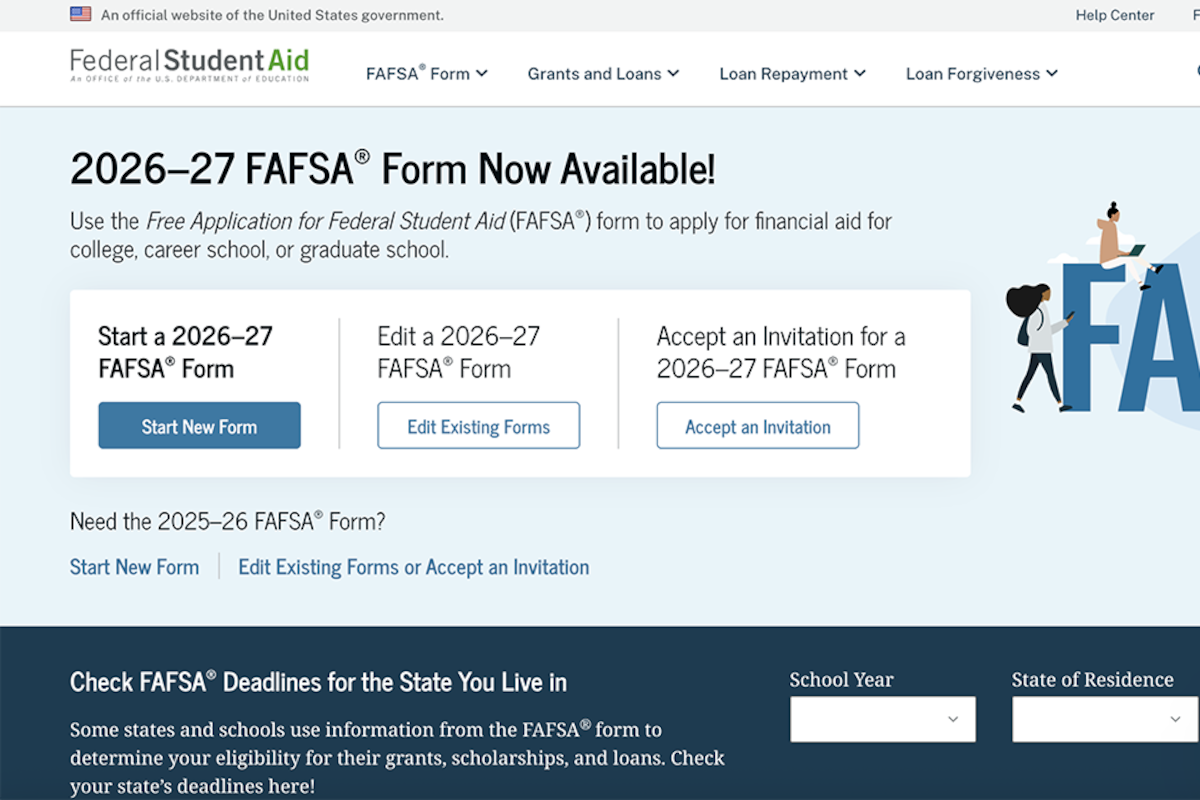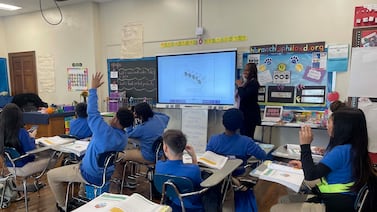Sign up for our free monthly newsletter Beyond High School to get the latest news about college and career paths for Colorado’s high school grads.
At a time when Colorado lawmakers want to boost the number of students filling out college financial aid forms, high school counselors are set to lose access to a state data tool that experts say is key to accomplishing that goal.
The tool shows counselors each student’s progress toward completing the Free Application for Federal Student Aid. Counselors use it to figure out if students are running into issues during the process so they can then get those students help.
The Colorado Department of Higher Education hired a temporary, full-time coordinator to manage the tool in 2023 as part of a push to increase FAFSA outreach. But state lawmakers cut the $61,000 position this past spring due to a budget shortfall. State budget writers thought it wouldn’t be needed because there’s already federal and state support for students to fill out the revamped FAFSA.
Although the so-called Better FAFSA has improved the process after a rocky rollout, national experts say state-run data tools such as this one remain one of the more effective ways to raise FAFSA completion rates — short of mandating that high school students complete the FAFSA to graduate, a policy Colorado has not adopted.
The loss of the coordinator means the state will stop providing student-level data starting in 2026.
Gabriel Guindon, Denver Scholarship Foundation’s director of college access, said his team was shocked when they heard about the cut in September. Guindon said it will be more difficult for his organization, which focuses on supporting Denver students going to college, to pinpoint students who haven’t completed a financial aid form.
“It is the one reliable, accurate source that summarizes where all students in a school building stand in terms of financial aid completion,” he said. “It will remove any ability for us to have an accurate list.”
The FAFSA opens up the possibility of federal money and other grants and scholarships to pay for college. State lawmakers have wanted to increase FAFSA support because students who complete it are more likely to immediately enroll in college. Many of Colorado’s highest paying jobs with opportunity for growth require schooling beyond high school.
Colorado has also ranked near the bottom in FAFSA completion for years. This last year, Colorado ranked 44th in the nation in getting 2025 high school seniors to complete the FAFSA. About 49% of its seniors finished the form. Data for the 2026 school year hasn’t been released yet.
In 2022, a state working group released a report commissioned by lawmakers that outlined ideas to help move Colorado into the top 10% of FAFSA completion by 2026 or get 80% of seniors filling out the form.
The report included recommendations to increase staff to help students, improve data resources, and create a statewide FAFSA requirement. Lawmakers have provided some money for the work, and the state has added multiple positions to its outreach team.
Lawmakers also haven’t fully funded recommendations in part due to budget concerns and to give the federal government time to fix problems with the new FAFSA application, which launched in late 2023. Lawmakers have also expressed concerns that a graduation requirement would place more work on schools.
Without the data tool, Guindon said his staff at the Denver Scholarship Foundation will have to reach out directly to every student to understand their progress.
“This is probably going to quadruple the amount of time, and probably even more, that (my) team members will have to focus on reaching out to students about their financial aid progress,” said Guindon.
The Colorado Department of Higher Education asked lawmakers in its budget request to continue funding the position. Joint Budget Committee staff recommended in March its elimination because “significant federal and local systems and structures provide robust support for FAFSA application completion to both individuals, families, and schools.”
Budget lawmakers did provide permanent funding at the request of the department for a Colorado Application for State Financial Aid coordinator, which the department created at about the same time as the coordinator who managed FAFSA data.
CASFA helps determine financial need for students who can’t fill out the FAFSA, such as students without legal documentation. Budget writers included $88,000 a year for the CASFA coordinator because they determined there’s less support for these students.
Without the FAFSA coordinator, the department will only be able to show district-level FAFSA completion data through the tool.
“I don’t know if we made a strong enough case, because I was surprised that they [the Joint Budget Committee] would cut it,” Colorado Higher Education Department Executive Director Angie Paccione said. “I’ll take that. I’ll own it.”
Bill DeBaun, senior director of data and strategic initiatives with the National College Attainment Network, said he’s never heard of a state removing access to a data tool due to how important the information can be to educators.
“There’s nothing I’m aware of inherent in the new FAFSA that would obviate the need for the kinds of state to local data sharing that have been successful across the country,” he said.
In 2019, Colorado had 15 FAFSA coordinators funded by a grant who worked in regions across the state, Paccione said. Since the grant expired, the team has gotten smaller, she said.
After the most recent cut, Colorado has eight staff members who work on FAFSA outreach but that’s only a very small portion of their job, a spokesperson said. The team has fewer staff members than in smaller states like Kentucky, North Carolina, and Georgia, DeBaun said.
The data coordinator potentially had the most widespread impact, DeBaun said.
“If you told me that I could have a coordinator who was either doing statewide programming or who could focus on the data sharing,” he said, “I would want to keep that data sharing piece because that is something that potentially touches every single school and school counselor in a state.”
Jason Gonzales is a reporter covering higher education and the Colorado legislature. Chalkbeat Colorado partners with Open Campus on higher education coverage. Contact Jason at jgonzales@chalkbeat.org.






